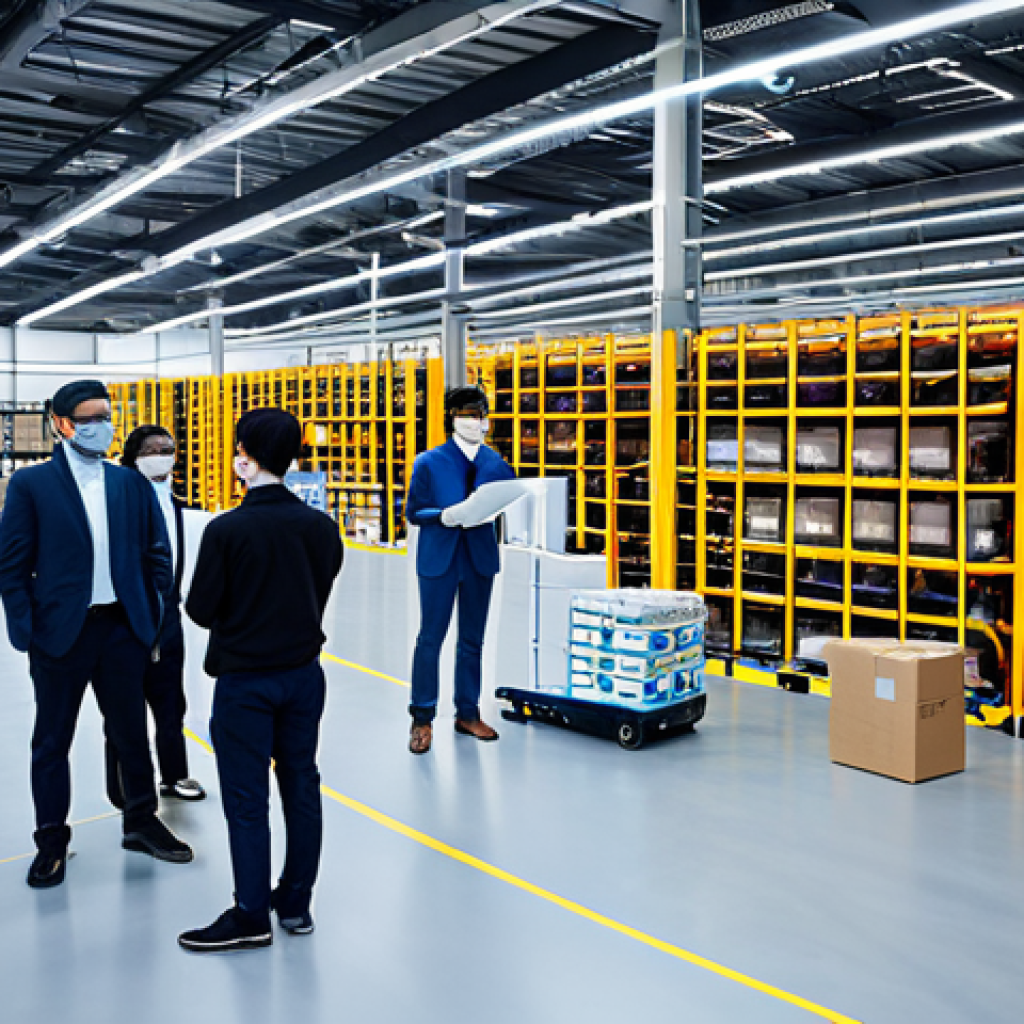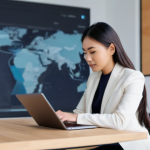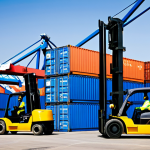International trade, especially when paired with technological advancements, presents a fascinating landscape of opportunities and challenges. From navigating complex regulations to harnessing innovative solutions, businesses must stay agile and informed to thrive.
Just yesterday, I was chatting with a colleague about how AI is revolutionizing supply chain management, and it got me thinking about the crucial role of trade expertise in this rapidly evolving world.
The intersection of global commerce and cutting-edge tech truly shapes our future. We’ll explore how these two forces interact and what it means for businesses aiming for global success.
I think you’ll find it interesting. Let’s explore this in more detail below!
Navigating the Murky Waters of International ComplianceThe thing about international trade is that it’s never as straightforward as you initially think.
Each country has its own unique set of rules and regulations, and staying on top of these can feel like a full-time job. I remember when we were trying to export a new line of organic snacks to Europe last year.
We thought we had everything covered, but then we got hit with a surprise labeling requirement from Germany. It set us back weeks and cost a fortune in re-labeling fees.
Understanding Regional Trade Agreements

Think of trade agreements like membership clubs, each with its own set of perks and stipulations. NAFTA (now USMCA) streamlines trade between the US, Canada, and Mexico, while the EU offers a vast, interconnected market.
Keeping track of these agreements and how they impact your business can be a game-changer.
Decoding Export Controls and Sanctions
Export controls are essentially governments saying, “Not so fast” to certain goods or technologies heading to specific countries. Sanctions are even stricter, often acting as a complete ban.
Overlooking these can lead to hefty fines or even criminal charges. It’s not just about the country you’re shipping to; it’s also about who’s on the receiving end.
The Rise of AI in Customs and LogisticsAI isn’t just a buzzword; it’s a real-world tool transforming international trade. I saw it in action at a logistics conference in Chicago last month.
Companies are using AI to predict delays, optimize routes, and even automate customs paperwork. It’s like having a super-efficient assistant who never sleeps.
Automated Document Processing
Forget endless stacks of paper. AI can scan, interpret, and file documents in a fraction of the time it takes a human. This not only speeds up the process but also reduces errors.
Predictive Analytics for Supply Chain Optimization
AI can analyze vast amounts of data to predict potential disruptions in the supply chain. This allows businesses to proactively address issues before they become major problems.
The Impact of Blockchain on Trade FinanceBlockchain, the technology behind cryptocurrencies, is making waves in trade finance. It offers a secure and transparent way to track goods, verify transactions, and reduce fraud.
I recently read a case study about a company in Singapore that used blockchain to cut their trade finance processing time by 40%.
Smart Contracts for Automated Payments
Smart contracts are self-executing agreements that automatically release payments when pre-defined conditions are met. This eliminates the need for intermediaries and reduces the risk of payment disputes.
Enhanced Transparency and Traceability
Blockchain provides an immutable record of every transaction, making it easier to trace goods from origin to destination. This is particularly useful for industries like food and pharmaceuticals, where product safety is paramount.
Sustainability as a Competitive AdvantageConsumers are increasingly demanding eco-friendly products and ethical business practices. Companies that prioritize sustainability in their international trade operations are gaining a competitive edge.
Just last week, I was talking to a friend who runs a small coffee import business, and she said that her sustainably sourced beans are selling like hotcakes.
Carbon Footprint Reduction Strategies
Shipping is a major contributor to greenhouse gas emissions. Companies are exploring ways to reduce their carbon footprint through measures like using alternative fuels, optimizing shipping routes, and investing in carbon offset programs.
Ethical Sourcing and Fair Trade Practices
Consumers want to know that the products they buy are made in a fair and ethical manner. This means ensuring that workers are paid fair wages, working conditions are safe, and environmental standards are met.
E-commerce Platforms as Global MarketplacesPlatforms like Amazon, Alibaba, and Shopify have made it easier than ever for businesses to reach a global audience.
But success in the e-commerce arena requires a strategic approach.
Optimizing Product Listings for International Search Engines
What works in the US might not work in other countries. You need to tailor your product listings to the specific search habits and language preferences of your target market.
Managing International Shipping and Returns
Shipping costs and customs duties can quickly eat into your profits. You need to find reliable shipping partners and have a clear returns policy in place.
Navigating Cultural Nuances in Global MarketingMarketing messages that resonate in one culture may fall flat or even offend in another. It’s essential to understand the cultural nuances of your target market.
I learned this the hard way when a marketing campaign we launched in Japan completely bombed because we didn’t take into account their communication style.
Adapting Marketing Materials for Local Audiences
This goes beyond simply translating your marketing materials. You need to consider things like colors, images, and messaging to ensure that they are culturally appropriate.
Building Relationships with Local Influencers
Local influencers can be powerful allies in reaching your target market. They can help you build trust and credibility with potential customers. | Aspect | Description | Example |
|—|—|—|
| Compliance | Adhering to international laws and regulations.
| Obtaining necessary export licenses. |
| Technology | Utilizing tech solutions for efficiency. | Using AI for customs clearance.
|
| Sustainability | Implementing eco-friendly practices. | Reducing carbon emissions in shipping. |
| E-commerce | Selling products through online platforms.
| Optimizing product listings for local search. |
| Marketing | Adapting marketing to cultural contexts. | Tailoring ad campaigns to local preferences.
|Navigating the Murky Waters of International ComplianceThe thing about international trade is that it’s never as straightforward as you initially think.
Each country has its own unique set of rules and regulations, and staying on top of these can feel like a full-time job. I remember when we were trying to export a new line of organic snacks to Europe last year.
We thought we had everything covered, but then we got hit with a surprise labeling requirement from Germany. It set us back weeks and cost a fortune in re-labeling fees.
Understanding Regional Trade Agreements
Think of trade agreements like membership clubs, each with its own set of perks and stipulations. NAFTA (now USMCA) streamlines trade between the US, Canada, and Mexico, while the EU offers a vast, interconnected market. Keeping track of these agreements and how they impact your business can be a game-changer.
Decoding Export Controls and Sanctions
Export controls are essentially governments saying, “Not so fast” to certain goods or technologies heading to specific countries. Sanctions are even stricter, often acting as a complete ban. Overlooking these can lead to hefty fines or even criminal charges. It’s not just about the country you’re shipping to; it’s also about who’s on the receiving end.
The Rise of AI in Customs and Logistics
AI isn’t just a buzzword; it’s a real-world tool transforming international trade. I saw it in action at a logistics conference in Chicago last month. Companies are using AI to predict delays, optimize routes, and even automate customs paperwork. It’s like having a super-efficient assistant who never sleeps.
Automated Document Processing

Forget endless stacks of paper. AI can scan, interpret, and file documents in a fraction of the time it takes a human. This not only speeds up the process but also reduces errors.
Predictive Analytics for Supply Chain Optimization
AI can analyze vast amounts of data to predict potential disruptions in the supply chain. This allows businesses to proactively address issues before they become major problems.
The Impact of Blockchain on Trade Finance
Blockchain, the technology behind cryptocurrencies, is making waves in trade finance. It offers a secure and transparent way to track goods, verify transactions, and reduce fraud. I recently read a case study about a company in Singapore that used blockchain to cut their trade finance processing time by 40%.
Smart Contracts for Automated Payments
Smart contracts are self-executing agreements that automatically release payments when pre-defined conditions are met. This eliminates the need for intermediaries and reduces the risk of payment disputes.
Enhanced Transparency and Traceability
Blockchain provides an immutable record of every transaction, making it easier to trace goods from origin to destination. This is particularly useful for industries like food and pharmaceuticals, where product safety is paramount.
Sustainability as a Competitive Advantage
Consumers are increasingly demanding eco-friendly products and ethical business practices. Companies that prioritize sustainability in their international trade operations are gaining a competitive edge. Just last week, I was talking to a friend who runs a small coffee import business, and she said that her sustainably sourced beans are selling like hotcakes.
Carbon Footprint Reduction Strategies
Shipping is a major contributor to greenhouse gas emissions. Companies are exploring ways to reduce their carbon footprint through measures like using alternative fuels, optimizing shipping routes, and investing in carbon offset programs.
Ethical Sourcing and Fair Trade Practices
Consumers want to know that the products they buy are made in a fair and ethical manner. This means ensuring that workers are paid fair wages, working conditions are safe, and environmental standards are met.
E-commerce Platforms as Global Marketplaces
Platforms like Amazon, Alibaba, and Shopify have made it easier than ever for businesses to reach a global audience. But success in the e-commerce arena requires a strategic approach.
Optimizing Product Listings for International Search Engines
What works in the US might not work in other countries. You need to tailor your product listings to the specific search habits and language preferences of your target market.
Managing International Shipping and Returns
Shipping costs and customs duties can quickly eat into your profits. You need to find reliable shipping partners and have a clear returns policy in place.
Navigating Cultural Nuances in Global Marketing
Marketing messages that resonate in one culture may fall flat or even offend in another. It’s essential to understand the cultural nuances of your target market. I learned this the hard way when a marketing campaign we launched in Japan completely bombed because we didn’t take into account their communication style.
Adapting Marketing Materials for Local Audiences
This goes beyond simply translating your marketing materials. You need to consider things like colors, images, and messaging to ensure that they are culturally appropriate.
Building Relationships with Local Influencers
Local influencers can be powerful allies in reaching your target market. They can help you build trust and credibility with potential customers.
| Aspect | Description | Example |
|—|—|—|
| Compliance | Adhering to international laws and regulations. | Obtaining necessary export licenses.
|
| Technology | Utilizing tech solutions for efficiency. | Using AI for customs clearance. |
| Sustainability | Implementing eco-friendly practices.
| Reducing carbon emissions in shipping. |
| E-commerce | Selling products through online platforms. | Optimizing product listings for local search.
|
| Marketing | Adapting marketing to cultural contexts. | Tailoring ad campaigns to local preferences. |
Wrapping Up
International trade is complex, but with the right knowledge and tools, it can be incredibly rewarding. Staying informed, embracing technology, and prioritizing sustainability are key to success. Don’t be afraid to seek expert advice when needed, and always keep learning!
Good to Know Information
1. Incoterms: Understand Incoterms (International Commercial Terms) to clarify responsibilities between buyers and sellers in international transactions.
2. Customs Brokers: Consider using licensed customs brokers to navigate import/export regulations and streamline customs clearance.
3. Currency Exchange Rates: Monitor currency exchange rates to mitigate risks associated with international payments.
4. Trade Shows: Attend international trade shows to network, explore new markets, and stay updated on industry trends.
5. Intellectual Property Protection: Protect your intellectual property (trademarks, patents, copyrights) in international markets.
Key Takeaways
Staying compliant, leveraging technology, and embracing sustainable practices are critical for success in international trade. Understanding cultural nuances and adapting your marketing strategies accordingly can give you a significant competitive advantage.
Frequently Asked Questions (FAQ) 📖
Q: How does the increasing use of technology, particularly
A: I, impact the roles of trade experts and professionals? A1: From what I’ve seen, the rise of AI isn’t about replacing trade experts but rather augmenting their capabilities.
Think of it this way: AI can handle the tedious tasks like data analysis and regulatory compliance checks, freeing up professionals to focus on the strategic aspects of international trade – relationship building, negotiation, and identifying emerging market opportunities.
My friend, who’s a trade consultant, was initially worried, but now she leverages AI tools to provide even more nuanced and personalized advice to her clients.
It’s like having a super-powered assistant that lets you focus on what truly matters: the human element of global business. It’s a total game-changer, honestly.
Q: What are some practical strategies for businesses to navigate the complexities of international trade regulations in different countries?
A: Honestly, navigating those international trade regulations can feel like walking through a minefield! One thing I’ve learned is that you can’t go it alone.
Building relationships with local experts and consultants in each country is crucial. They understand the nuances of their own regulations, cultural expectations, and business practices.
Another strategy, and I cannot stress this enough, is thorough due diligence. Before entering a new market, invest in understanding its legal and political landscape.
Yesterday, I was reading a story about a US company that got into serious trouble because they didn’t properly research local labor laws in Southeast Asia.
Ouch!
Q: Given the interconnectedness of global trade and technology, what skills are most valuable for professionals seeking a career in international business today?
A: I believe the most valuable skills are adaptability, technological fluency, and cross-cultural communication. Being able to adapt to new situations and quickly learn new technologies is essential.
Also, really understanding how different cultures operate and communicating effectively across them can make or break a deal. It’s not just about speaking the language; it’s about understanding the underlying values and assumptions that drive behavior.
I’ve noticed that people who are open-minded, curious, and empathetic tend to thrive in this environment. And frankly, a little bit of grit doesn’t hurt either!
The ability to just buckle down and figure it out, even when things get tough.
📚 References
Wikipedia Encyclopedia






